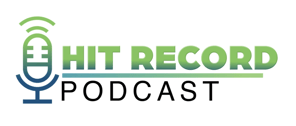Episode 18 - How the Impact Over Activity Test can Benefit Your FI


Don't Miss An Episode, Subscribe Now

Podcast Episode 18: When it comes to new initiatives and undertakings, your community bank or credit union must consider if the long term impact of any given strategy outweighs the cost and effort put into that said strategy.
Transcription:
Have you ever been talking about something that's really useful and thought, "That's a great idea, let's hit record so we can share this with everyone?” If you're looking for best practices for your bank or credit union, join us while we talk all things sales, marketing, and strategy for financial institutions. Let's make it happen with FI GROW Solutions.
Meredith Olmstead:
Hi, I'm Meredith Olmstead, CEO and Founder of FI GROW Solutions. We are a marketing agency, we work solely with banks and credit unions. And I am here with Penne VanderBush, she is our Chief of Strategy at FI GROW, say hi Penne.
Penne VanderBush:
Hey there.
Meredith Olmstead:
And we were just having a really awesome conversation about something that's to really near and dear to our hearts at FI GROW, but that also really applies to financial institutions. So we thought we would push record and share it with you all. And that's this conversation about impact over activity. And it's this idea, and we use it all the time internally at our agency, where we want to make sure that whatever the impact of whatever project or undertaking we're about to go into as a team or even individually has, is greater. So the activity, the effort that goes in, isn't greater than the impact of that effort or activity. So you want to make sure that the impact is higher than the activity itself, if you will.
Meredith Olmstead:
So basically at FI GROW, a lot of times we'll have great ideas, and we know there's lots of great ideas out there at financial institutions and lots of businesses, and we'll start discussing it. "Okay, so what's the impact of this idea going to have in the long term?" And we really start thinking, is this impact over activity? And it's kind of a guiding light as one of our main ways of focusing and making decisions around new ideas or projects internally. And it also helps us guide our clients. And so we really wanted to talk for a few minutes about how impact over activity can help your financial and institution make potentially better decisions. Not just marketing decisions, but bigger decisions in general. So Penne, tell me a little bit about what you're thinking when it comes to impact overactivity for a bank or a credit union.
Penne Vanderbush:
Yeah, absolutely. A lot of the times this stems from data driven decision making as well, utilizing the data that's available to you to determine the impact that your efforts are having. To say, okay, is the impact greater than the human resources that we have into producing? Marketers see this a lot with requests from other departments coming in like, "Hey, we need a graphic made for such and such sponsorship." Or "Wouldn't it be cool? Wouldn't it be great if we had this handout in our lobbies or we could stick this in our drive through tubes." These types of reactionary, if you're a marketer, request for a lot of things that they're great ideas, but there's many great ideas that don't necessarily pass the impact over activity test. Which is, how many hours is it going to take for marketing to produce that material?
Penne VanderBush:
The cost of printing it, the time from which the idea comes to fruition till it's actually implemented, because it's back from the print house. Is it still timely? And we'll just see often that people are maybe even excited about some of the work that they're doing. And then when you break it out a little bit, you realize, wow, that was a ton of effort that you put into that. Sending marketing emails, the idea of if someone hasn't opened the marketing email, they're not clicking in the marketing email, set up a resend of that. If you have a tool that can do that easily and efficiently and automatically, then often that's a great idea. If you aren't using a tool like that, and instead you're having to clone that email and resend it and you look at the effort and the people who are opening it and what's happening. You may find through your data that the activity of somebody doing something that otherwise seems like a good idea, actually doesn't outweigh the final impact it has of generating leads or placing product and service.
Meredith Olmstead:
Yeah. We see that a lot too. I think also we talk about meetings, for example. Our great example of impact over activity, does everything have to be a meeting? Could an email take place of a meeting potentially? Or could an email have been a chat, an instant chat with somebody to avoid clogging up somebody's inbox. So it's the same kind of thing, right? We're really trying to add some efficiencies, even in the smaller bits and pieces of your day and your organization. So absolutely, I think there's a lot of times where we get stuck in the rut of meeting for meeting's sake and it really isn't impact over activity for sure.
Meredith Olmstead:
I think the other thing that we were talking about was another example for financial institutions, is when they're constantly asked to support a local cause or community organization. And so it's hard to say this, because we'd like to be able to say yes to every request that comes into the business to support the little league team or one of the local chamber of commerce or something along those lines. There's lots of different things that come in, but resources are finite. And so what you really have to ask yourself as an institution is, what is the impact over this activity? If I'm going to promise X number of hours of donated hours by staff, is that going to create an impact that's measurable and that's greater than the activity that went that donation.
Penne VanderBush:
Absolutely. And that circles back to goals too, the goal of that organization, what their greater impact is necessarily in the community and your participation in that. And that comes back in house as well as far as, we like to say here a lot, "Don't just bring a problem, bring a solution." And that saves a significant amount of time. If you come into a meeting or send an email or a chat where you're laying out the problem, because you are experiencing the problem, you have the greatest insight for what potential solutions could be. And so when you present that problem and you're like, "But here are some potential solutions that we can flush out." It significantly speeds up the process of finding the solution-
Meredith Olmstead:
Absolutely.
Penne VanderBush:
Throughout that. And we'll see often, with like third party vendors where they might come to you and say, "Oh, we've got this great upgrade for your online banking." Or your application or whatever it is that you're using them for. It greatly enhances the user experience. You might even feel like it's required of you to go through that upgrade process because it's solving problems. But then when you break it down, you say, well, what problem is it really solving? And you get into the details, sometimes you might find that you could have had slated a several month project for upgrades to third party applications that you're using, where when you measure the impact that those upgrades are actually going to have, they don't outweigh the amount of resources that you have to dedicate to them.
Penne VanderBush:
And you're pulling your team members off of other potentially more impactful projects and campaigns, or initiatives, for something that's just brought into you potentially by a third party saying this needs your resources. So I like to use that impact over activity gauge as, when you're being approached from others to ask for your resources in that capacity as well. What's the goal of that upgrade? What's the problem? What are the potential solutions and are these solutions passing the impact over activity test, if you will?
Meredith Olmstead:
I think that's often too why so many things in digital tend to really pass this impact over activity test. Because you have such a huge amount of reach and potential eyeballs, potential viewers online. Whereas if you're doing things like in the business development capacity, or like going out and knocking on doors or attending events, or visiting local businesses. While it can have some great impact and there is going to be some good uses for that, you have to weigh both of those activities and think, okay, well the digital space is really, really meaningful. It can have a huge impact because of the volume of eyeballs and traffic that you're getting.
Penne VanderBush:
Yeah absolutely. And as you're making those plans, like your business development plan for the year, any of the initiatives. A lot of the times we'll see heading into the fall it's budgeting season, people are trying to create a plan for the next year and you might have some great ideas as part of your strategic plan heading into a new year that really do pass the impact over activity test. But then when you go to implement them, say it's Q3 by the time you're getting around to starting that initiative, it's always important to reevaluate again at that time. Because other things could have changed in the meantime, where what originally would have caused a significant impact over the activity of working on it, it could have changed and maybe it doesn't pass that test anymore. So don't be afraid to ask that question often, in meetings or as you approach new initiatives. Just double checking, does this meet impact over activity metrics for us before we get started?
Meredith Olmstead:
Yeah, absolutely. I mean, there's a lot of great ideas that don't pass it, that don't pass the impact over activity test. And that honestly isn't to say they weren't great ideas. It's just a matter of weighing your resources, your human resources and other resources that you have and making really strategic decisions that are going to positively impact the entire organization over the long term. So-
Penne VanderBush:
Absolutely.
Meredith Olmstead:
Awesome conversation, thanks Penne so much.
Penne VanderBush:
Yeah absolutely.
Meredith Olmstead:
Please you guys feel free to visit us at FIGROW.com. We have lots of other resources. We have a FI GROWTH academy there with some other courses you can take around digital marketing and sales. And we have lots of other podcasts there on various topics that really help drive growth at your bank or credit union. So we'd love to see you there and let's go out there and make it happen. Thanks.








Blog comments